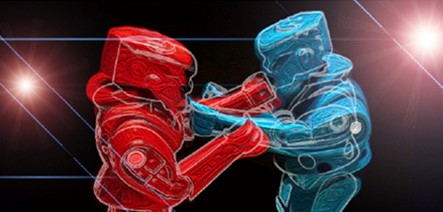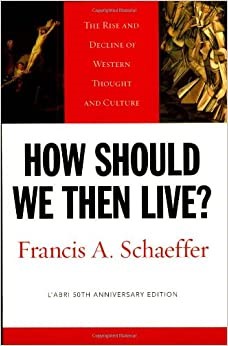Karl Marx vs Ayn Rand

Karl Marx vs. Ayn Rand
In the Red corner, sporting red trunks with yellow hammer and sickle emblem and his trademark bushy beard is none other than Karl Marx, tended by his trainer, Freddy Engels. And in the opposite corner, sporting a blue, silk t-shirt with the slogan, “I Did It My Way”, is Alisa Zinovyevna Rosenbaum, better known as Ayn Rand, accompanied by her life-long devotee, Frank Sinatra.
Both Marx and Rand wielded major influence during their lifetimes – influences which still shape political and social policy today, long after their respective demises. Not surprisingly, their personal philosophies form the foundations of the two political juggernauts battling for absolute control of the United States today and, ultimately, the world order tomorrow.
Uncle Karl
Born in Germany in 1818, he studied philosophy and law at both the Universities of Bonn and Berlin. Marx’s critical theory of society, economics, and politics (eventually labeled “Marxism”) was both hated and loved. The combination of his passion and his superb writing skills spread his philosophy like wildfire and resulted in him exiting his homeland for the safety of exile in Great Britain.
Marx’s philosophy capitalized on the age-old concept of “haves” vs. “have-nots”, and he theorized that the conflict between the “haves” (those nasty bourgeoisie business owners) and the “have-nots” (the downtrodden proletariat laborers) would result in a great societal upheaval, leading to an Eden of equality. Marx also theorized that individual humans were innately good creatures who were befouled by immoral society, another condition that would be righted in the coming utopia.
Auntie Ayn
Born in Russia in 1905, Rand witnessed firsthand, the oppression that grew out of Marx philosophies. Not surprisingly, she migrated to the United States in 1926 and began publishing writings which extoled the virtues of freedom from government intervention, rugged individualism, and a philosophical concept she called “Objectivism”. Equally unsurprising, her ideology marketed well in the land of the greenback.
Rand advocated reason as the only means of acquiring knowledge, rejecting all aspects of faith and religion. She radically supported Capitalism as a system based on individual rights and she shunned both collectivism and statism. Although she opposed the libertarianism of her day, Rand is often seen as foundational to the modern libertarian movement in the United States.
The Problem with Aunts & Uncles
Perhaps, the most obvious issue with contemporary adherents to either of these philosophies is that they don’t really have a clue what these diverse mindsets are based on, or where they lead. Most of what passes for Socialism today is really personal entitlement with a cheap paint job. Most of what passes for capitalism today is really just greed with a veneer of self-justification.
The second, and more serious foundational issue is that both philosophies are Humanist philosophies at their core. Both Marx and Rand espoused that individual human beings are the consummate products of evolution and therefore embody the ability to define right and wrong. Stop for a minute and consider the long-range implications of that ideology.
That thinking is pervasive today and it sounds great on the surface, but at the end of the day, it justifies every atrocity in human history. Thousands of years of slavery (from the Roman Empire to the Western slave trade, to the current world-wide trade in sex slaves), to Hitler’s extermination of six million Jews, and Mao’s extermination of 23 million dissidents, were all initiated by powerful human beings who firmly believed they were “right”. No matter how odious those actions are in hindsight, at the time of their implementation, powerful individuals believed themselves to be on the right side of morality.
Belief is Irrelevant
Right is not right just because you or I believe it’s right. The problem is that you and I are, in our deepest psyches, self-serving creatures, willing to delude ourselves according to the needs of our egos. If there truly is no higher power, then all of us (liberals and conservatives, Democrats and Republicans, Communists and Capitalists) have only one method by which morality is determined – power. The largest and/or most powerful group decides for everyone else what is right – in business, in our personal lives, in government. After all, they are obviously the most evolved or they wouldn’t have subdued the rest of Humanity. And their concept of “right” remains in place until an even more powerful group comes along and knocks them off their throne.
I don’t know about you, but I have some issues with the Humanist concept of right and wrong and I see the havoc that it causes every single day.
 Maybe you think I’m just an outdated religious fanatic. Great. Convince me I’m wrong. Just hit that reply button and I’ll buy the coffee. Since there’s a fantastic new bakery in town, I might also spring for a slice of pound cake.
Maybe you think I’m just an outdated religious fanatic. Great. Convince me I’m wrong. Just hit that reply button and I’ll buy the coffee. Since there’s a fantastic new bakery in town, I might also spring for a slice of pound cake.
“Most people catch their presuppositions from their family and surrounding society, the way that a child catches the measles. But people with understanding realize that their presuppositions should be *chosen* after a careful consideration of which worldview is true.”
― Francis A. Schaeffer, How Should We Then Live? The Rise and Decline of Western Thought and Culture

Did someone forward this newsletter to you after reading it themselves? Don’t settle for that!
CLICK HERE
to get a fresh, unused copy of this newsletter sent directly to you every Sunday morning. If you decide it stinks, you can always unsubscribe.
How Should We Then Live
— Francis A. Schaeffer
Yeah, I get it. You’re wondering why anyone would read the works of a theologian and Philosopher, especially one who died in the previous century, in order to improve their career or their business culture today. Until we start thinking about why we think what we think, we’re just living someone else’s prescription for life. Schaeffer does a masterful job of mapping the rise of Western thinking (both secular and religious), and he poses the questions that we need to be asking ourselves.













